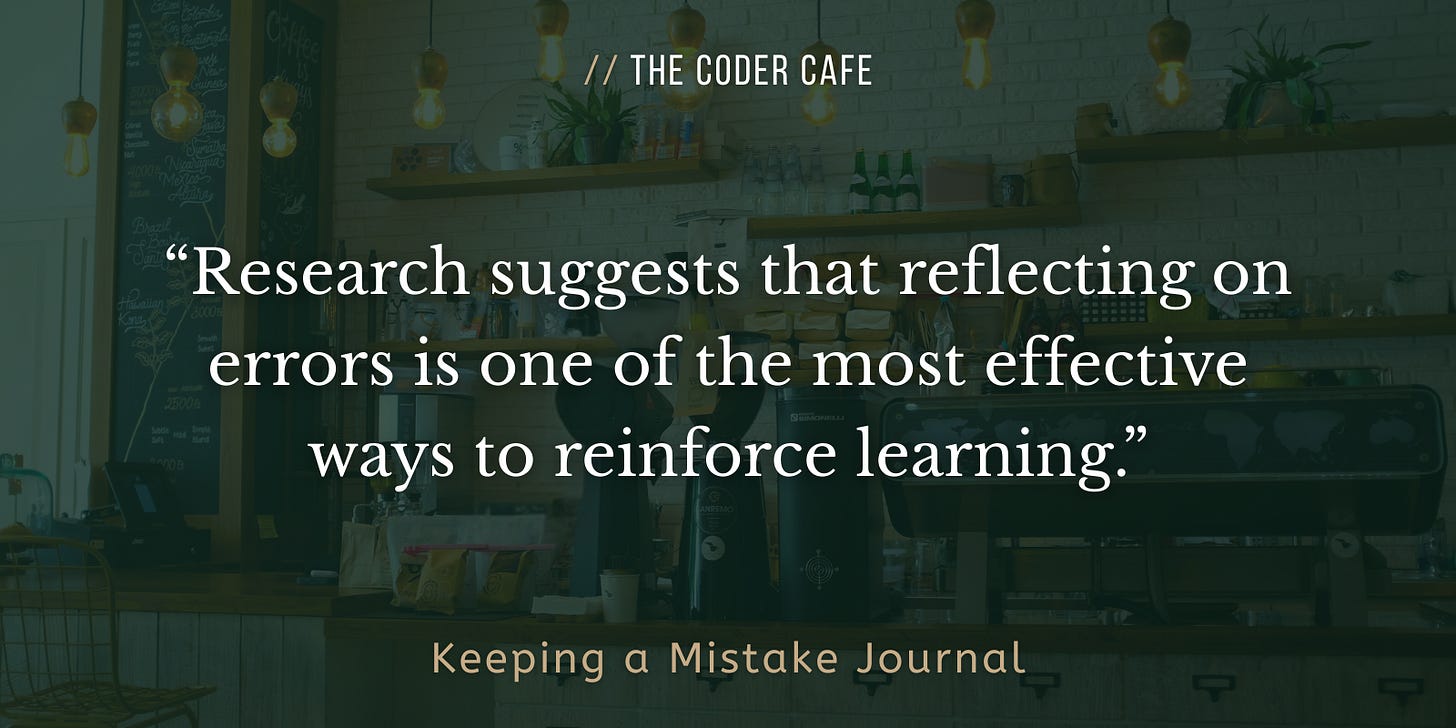Hello! Today, I wanted to share with you a method I’ve been personally using to learn from our mistakes.
Making mistakes is inevitable. Personally, I even wrote a book about mistakes, and, as I mentioned in it, I was a great source of inspiration for the content.
But what really matters is not making the same mistakes over and over. Ideally, we make a mistake once, extract a lesson, and ensure we never repeat it.
Do you know that making mistakes can actually help us grow? Research by cognitive scientist Janet Metcalfe suggests that reflecting on errors is one of the most effective ways to reinforce learning. Indeed, when we consciously analyze our mistakes, they don’t just fade away; instead, they reshape our thinking, helping us adapt and avoid repeating them in the future.
That’s why, for the past two years, I’ve been following a simple yet effective system to track, reflect on, and learn from my own mistakes. Of course, I don’t log every tiny one. Yet, my rule is simple: if a mistake makes me frustrated with myself, it’s worth tracking.
Each mistake I log follows a structured format:
Name: A short, descriptive name.
Tags: Relevant categories.
Context: The situation in which the mistake happened.
Problem: A description of the mistake itself.
Impacts: The possible consequences of making this mistake.
Lessons learned: What I can take away from it.
Correction plan: What I will do to prevent this mistake in the future.
Latest occurrence: When I last made this mistake.
Repetition: How many times I made this mistake.
Here’s an example:
Name: Skimming instead of reading carefully.
Tags: Critical thinking, Attention to detail.
Context: When reviewing an email, document, or technical spec.
Problem: To save time, I sometimes skim through important content instead of reading it properly.
Impacts:
Leads to a partial understanding of a context.
Causes misunderstandings, requiring additional clarifications.
It can result in wrong decisions based on incomplete information, and/or I can look like an idiot.
Correction plan: Better assessment of whether full attention is required. If it is, commit to reading properly.
Personally, I keep my mistake journal in Notion, but I guess any tool or even a physical journal could work.
Since implementing this system, I have noticed:
Fewer repeated mistakes: I make the same mistakes less often.
Pattern detection: It helped me recognize patterns in my own mistakes and better understand my own biases.
Better decision-making: I catch potential mistakes earlier.
Mistakes are part of learning; they don’t have to be failures if we learn from them. By tracking them, we can turn them into lessons that help us grow and improve over time.
💬 Do you also track your mistakes? If yes, what’s your approach?
❤️ If you made it this far and enjoyed the post, please consider giving it a like.
.png)



![Russia's Spy Hotel – Unit 29155 [video]](https://www.youtube.com/img/desktop/supported_browsers/firefox.png)

